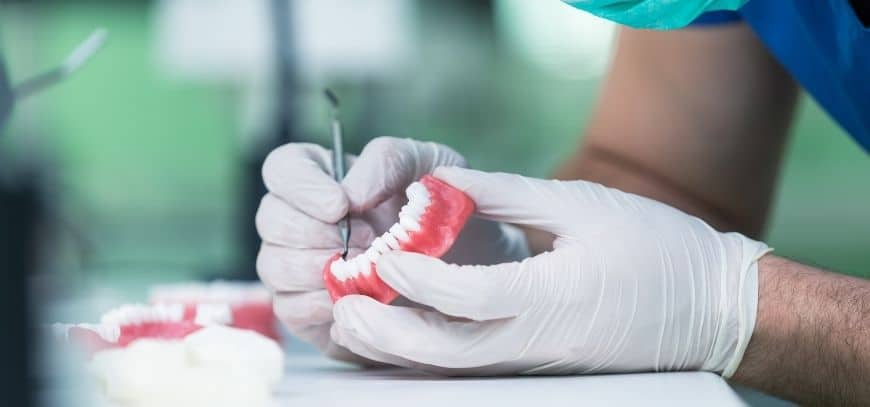






Dentures (also known as false teeth) are prosthetic devices constructed to replace missing teeth, supported by the surrounding soft and hard tissues of the oral cavity.
Conventional dentures are removable (removable partial denture or complete denture). However, there are many denture designs, some of which rely on bonding or clasping onto teeth or dental implants (fixed prosthodontics).
There are two main categories of dentures, the distinction being whether they fit onto the mandibular arch or on the maxillary arch.
Complete Dentures: In case of complete teeth loss, and it’s custom-made to fit the individual’s mouth and provide a functional and aesthetic replacement for natural teeth.
Partial Dentures: when some natural teeth are still present in the mouth, They are designed to fill in the gaps created by missing teeth and are typically removable.
Fixed Prostheses: Such as dental bridges are non-removable tooth replacements, recommended when one or more adjacent teeth are missing, also provide a permanent solution for missing teeth and offer excellent stability and aesthetics.




Taking care of your denture carefully maintain good oral hygiene and prolong the lifespan of the dentures, Here are some tips for cleaning your dentures properly